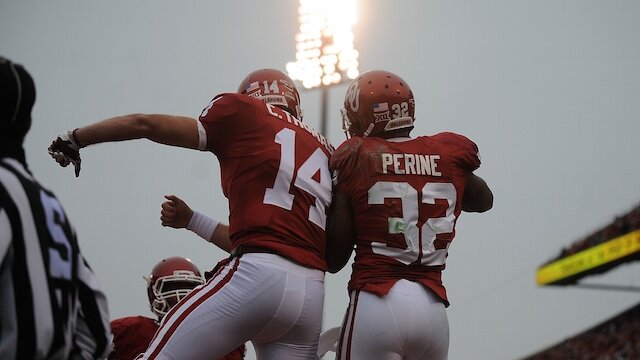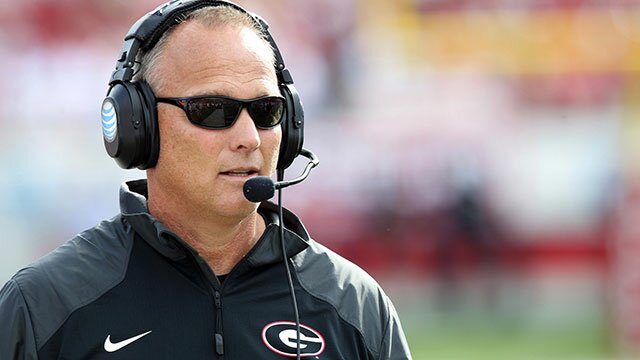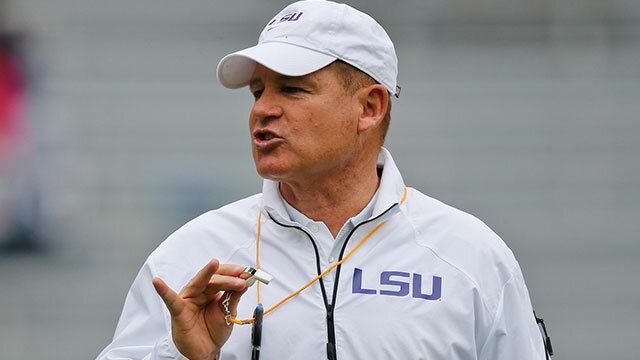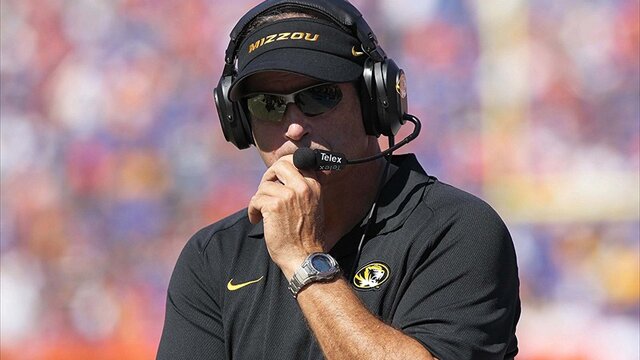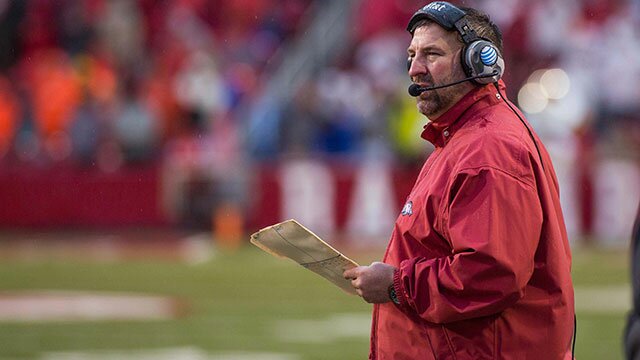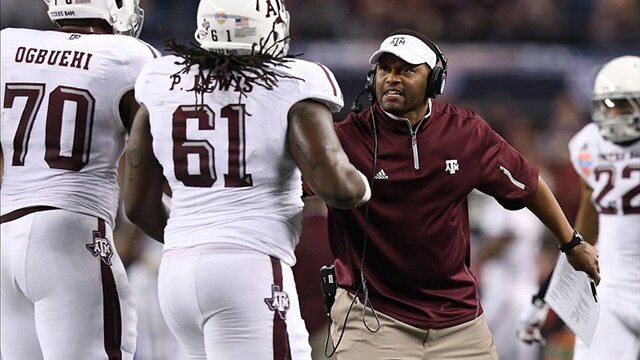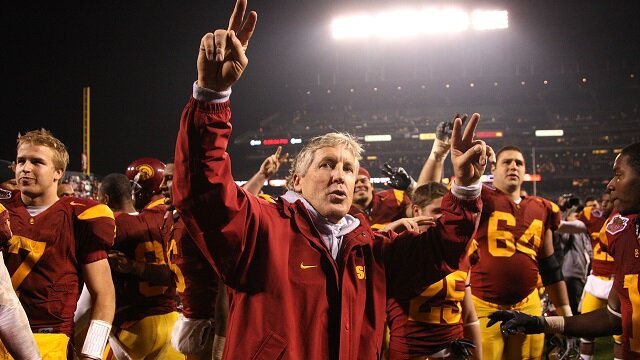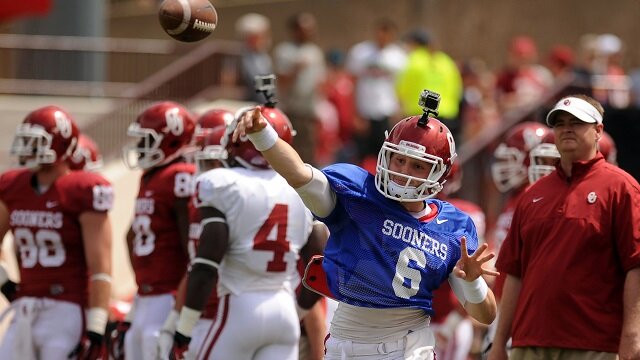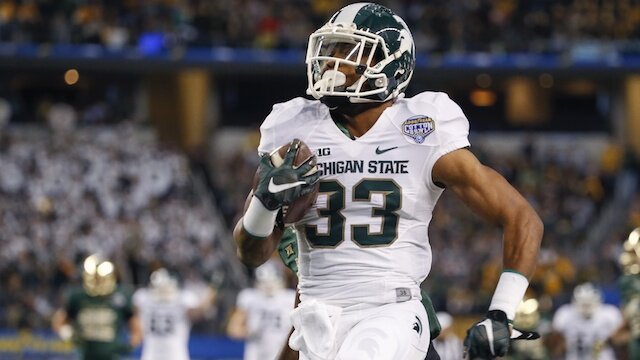Freshman Ineligibility Proposal a Terrible Idea for College Football
According to multiple reports, commissioners from numerous major conferences around the country have begun looking into a proposed “year of readiness” measure that would make incoming freshmen ineligible to play in men’s basketball and football. While this rule seemingly would be targeted at the “one-and-done” phenomenon in basketball, it is an equally terrible idea for college football.
The NCAA used to have a rule on the books that prevented freshmen from participating in sports during their first year on campus. That rule was abolished back in 1972, however, when it became apparent that many 18 and 19-year old stars were ready to contribute immediately. It was an archaic rule 43 years ago and it’s only more outdated now.
There are plenty of good intentions behind the proposed rule change, of course. When asked about the Big Ten circulating a request for feedback on the idea from its members, Maryland Terrapins president Wallace Loh supported the notion, positing that if student-athletes spend more time adjusting to the studious aspects of life on campus, they would more likely to finish their degree and get an education.
He’s not alone in seeing this rule change as a positive thing. Pac-12 commissioner Larry Scott has apparently discussed the idea with several other commissioners and sees the conversation heating up in the coming months. Big 12 commissioner Bob Bowlsby has told reporters there is “growing interest” in debating the idea. Iowa Hawkeyes’ head football coach Kirk Ferentz called the idea “one of the healthiest things we could do for college sports right now,” saying that it would take a tremendous amount of pressure off incoming freshmen who may be carrying heavy expectations from being hotly recruited.
That’s all well and good, of course, but it’s completely unnecessary, particularly for college football. High school athletes today are coming in more prepared than ever to make immediate impacts and several true freshmen made huge impacts on their teams in 2014.
Myles Garrett, the No. 1 overall recruit in the 2014 recruiting class, set an SEC freshman record with 11 sacks for the Texas A&M Aggies and proved nearly unblockable against more experienced offensive linemen all season long. Cam Robinson started every game at left tackle for the Alabama Crimson Tide and routinely graded out as the team’s top offensive linemen on their way to an SEC title and a spot in the College Football Playoff. Adoree Jackson made his presence felt in all three phases for the USC Trojans, recording 42 tackles and nine pass breakups (winning Pac-12 defensive freshman of the year) while catching seven passes with two touchdowns on offense and a return touchdown off a kickoff. And they were far from alone in making immediate impacts this season.
No position saw an influx of true freshmen talent in 2014, however, quite like the running back position. Nick Chubb of the Georgia Bulldogs, Royce Freeman of the Oregon Ducks, Leonard Fournette of the LSU Tigers, Nick Wilson of the Arizona Wildcats, and Dalvin Cook of the Florida State Seminoles all had breakout 1,000-yard seasons as freshmen, leading their respective teams in rushing. But the best of them was Samaje Perine of the Oklahoma Sooners, who led all freshman rushers (and finished No. 8 in the nation) with 1,713 yards rushing and 21 touchdowns, highlighted by an NCAA-record setting 427-yard performance against the Kansas Jayhawks.
All of these players (and countless others) proved beyond any reasonable doubt that they were ready to make an immediate impact on college football in their first seasons on campus. If this proposed “year of readiness” rule had been in effect this season, none of these players would have found the field and been stuck wallowing on the sidelines. This would have delayed their development as college football stars and severely hampered their respective team’s chances of success on the field. Can you imagine how Georgia would have fared if Chubb had not been there to step in for Todd Gurley?
And if a young player shows up to campus and doesn’t have what it takes to make an impact right away, college football already has a method of giving a player extra time to get acclimated with a redshirt. Plenty of players have been redshirted with great success, like the last three Heisman Trophy winners Marcus Mariota, Jameis Winston, and Johnny Manziel. Their coaches saw they needed a bit more experience away from the playing field and utilized the tools already at their disposal to take care of them.
What the NCAA says that it intends to do with this freshman ineligibility proposal is a noble, but outdated sentiment. They seem to be intent on protecting the “sanctity” of the student athlete but seem oblivious to the reality that this ship has already sailed. College football is a billion-dollar business that universities have capitalized on, often at the expense of the “student-athletes” that take the field.
College football has not been about the student athlete for a very long time and this rule proposal seems like an antiquated attempt to further impose control over these college athletes. The well-being of their academic standing has fallen far down the list of priorities and this rule will not fix that. It is a thinly veiled, ham-handed attempt to either exert more control over student athletes or leverage more power from the NBA and NFL, who use the college ranks to funnel talent into their ranks.
All this proposed change will accomplish is to punish those players that are physically ready to make their mark on the field. It’s an outdated and ineffective regulation that has already been stricken from the rulebook once and has no business in making a return. It’s a waste of time for college football administrators that takes away from some of the real issues that could help make college football better.
Pursuing freshmen ineligibility is a bad idea for college athletics as it will simply hurt the best young players in the country and hurt the game in a needless fashion by keeping the best players on the sidelines. If a player can play, then they should be able to play without the heavy, misguided hand of the NCAA interfering.
If these talks do pick up momentum, it will be bad for the NCAA, student athletes and college football.
You can follow Tyler Brett on Twitter @ATylerBrett, on Facebook and on Google.
Baylor Offense in Good Hands with Seth Russell
Baylor will turn its prolific offense over to quarterback Seth Russell and shouldn't miss a beat in 2015. Read More
SEC Hot Seat Monitor: Auburn's Gus Malzahn
The Auburn Tigers had an 8-5 season in 2014 after playing for the national championship the year before. Read More
NCAA Should Issue Hardship For Temple’s Jennings
The case of Adonis Jennings is the perfect example of why the NCAA should automatically approve waivers for players who are victims of coaching staff changes. Read More
Dak Prescott Beaten Up In Drunk Spring Break Brawl
Mississippi State quarterback Dak Prescott and two teammates were jumped at a Waka Flocka concert in Florida. Read More
SEC Hot Seat Monitor: Georgia's Mark Richt
Since his hiring as the head coach of the Georgia Bulldogs, it seems that Mark Richt has been on the hot seat. Read More
SEC Hot Seat Monitor: LSU's Les Miles
The LSU Tigers have become perennial contenders in the SEC during the tenure of head coach Les Miles. Read More
5 Questions for Missouri Football During Spring
The Missouri Tigers won the SEC East for the second straight time last season. Read More
5 Questions for Arkansas Football During Spring
The Arkansas Razorbacks were the surprise team in the SEC last season. Read More
SEC Hot Seat Monitor: Texas A&M's Kevin Sumlin
The Texas A&M Aggies have had their ups and downs over the last three seasons. Read More
USC Trojans, Pete Carroll Ready to Reunite?
Pete Carroll is set to be honored by USC this May. Should the Trojans be so quick to associate themselves with their former coach? Read More
QB Mayfield is Player to Watch for Oklahoma
Oklahoma is shaking things up heading into spring practice. Could Baker Mayfield take advantage and win the starting QB job for 2015? Read More
Michigan State Football Must Reload At RB In 2015
Mark Dantonio needs a workhorse to replace Jeremy Langford in 2015, and he may have found one in four-star recruit L.J. Scott. Read More





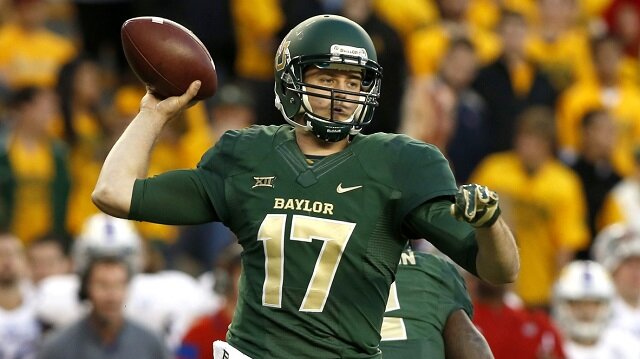
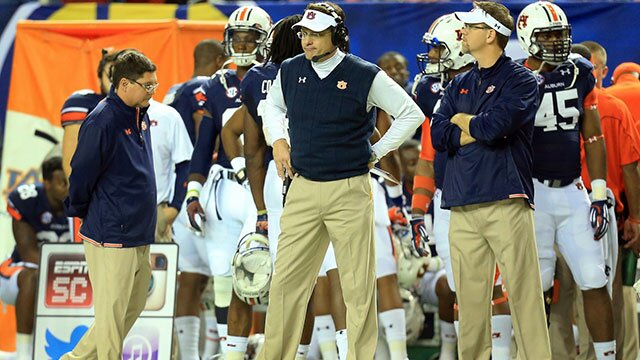


 @atylerbrett
@atylerbrett 